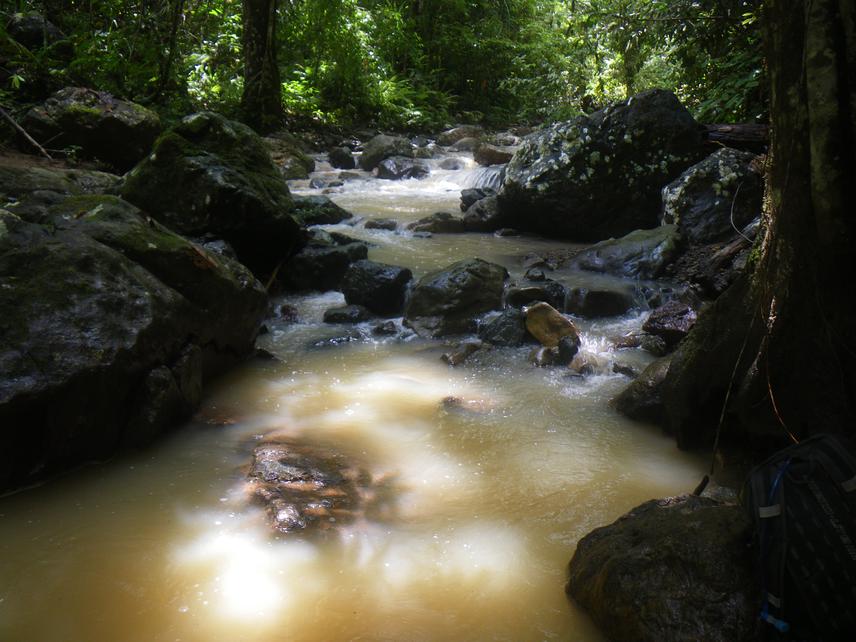Alice Milton
This project will explore the communities of algae and aquatic invertebrate grazers in streams set in a landscape mosaic of forest and palm oil plantations. Better understanding of the impact that catchment and riparian land use has on these communities (and on the ecological functions they perform) will inform land managers and policy makers in this area.

Stream ecosystems in tropical forest landscapes are highly diverse and provided vital ecosystem services, including the provision of drinking water. Aquatic communities, and the ecological functions they perform, are threatened by land use changes. Borneo’s lowland rainforests are undergoing agricultural conversion on a massive scale, with rapid expansion of areas of Palm Oil cultivation.
This project will study algae and invertebrate grazers in a landscape currently undergoing deforestation, fragmentation and conversion to Palm Oil in Sabah, Borneo. The study site is a large-scale experimental area, the S.A.F.E project, where land use ranges from primary rainforest, through lightly and heavily logged secondary forest, to palm oil plantations. The study streams have forested riparian strips of varying widths and of varying habitat quality. Land use changes in a stream catchment can lead to higher levels of sedimentation, increased nutrient inputs and changes to hydrological regimes and stream channels. Maintaining riparian forest buffers is thought to reduce the impact of these effects and protect aquatic biodiversity, but the specific details of how algae and aquatic invertebrates respond to land use change, with and without riparian buffers, is not well understood, especially in the tropics.
As part of this project, I will sample the abundance and diversity of benthic macroinvertebrate grazers in a range of study streams. I will also measure the growth rates and abundance of benthic algae, and experimentally quantify the rate of herbivory of algae by invertebrates. This data will contribute to a growing body of knowledge, produced at the S.A.F.E Project, about the effects of land use on stream ecosystems and, it is hoped, will contribute to the development of forest management policies that better protect aquatic biodiversity in this region of Borneo.
In addition to the research element of the project, I will create a presentation highlighting the importance of maintaining healthy streams in lowland Borneo, and share it with schools both in the local area and in the UK.